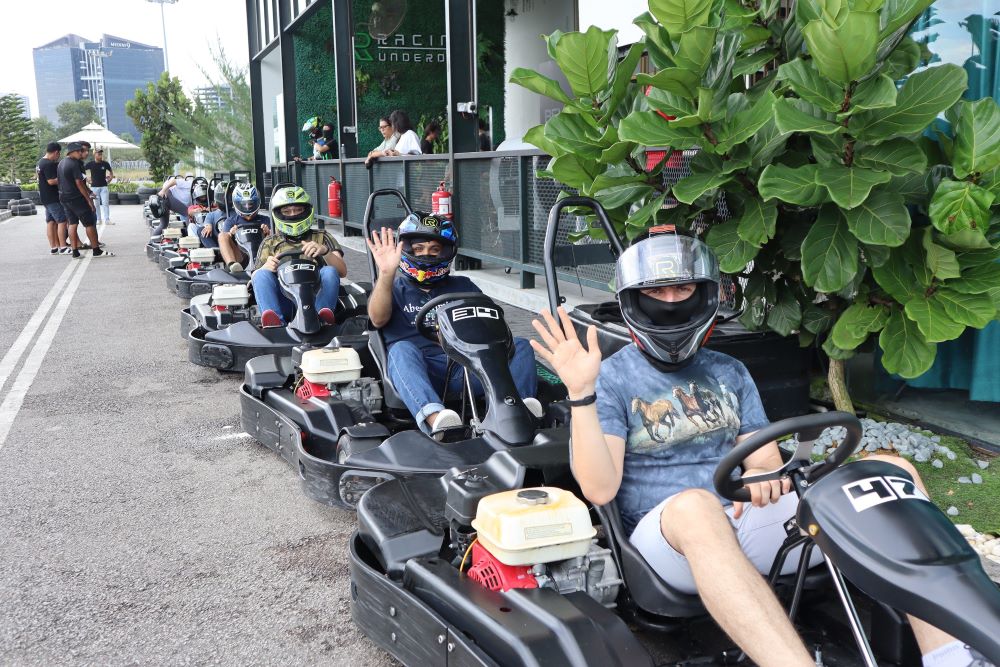What is Gamification and What Role Does it Play in Corporate Events?
Gamification is a concept that has gained significant traction in various industries, including corporate event planning. At its core, gamification involves integrating game-like elements into non-gaming contexts to engage and motivate participants. This approach taps into the innate human desire for achievement, competition, and reward, transforming ordinary activities into more interactive and enjoyable experiences. But what exactly does gamification entail, and how does it influence corporate events?
Understanding Gamification
Gamification involves using game mechanics such as points, badges, leaderboards, challenges, and rewards in non-game scenarios. These elements are designed to encourage participation, drive engagement, and create a sense of accomplishment among participants. In the corporate world, gamification is often applied to training programs, marketing campaigns, employee engagement strategies, and, importantly, corporate events.
By incorporating these game mechanics, companies can turn mundane tasks into exciting challenges, motivating employees to participate more actively and enjoy the process. Gamification isn’t just about playing games; it’s about harnessing the principles that make games compelling and applying them to achieve business objectives.
The Role of Gamification in Corporate Events
Gamification plays a pivotal role in enhancing corporate events by making them more interactive, memorable, and aligned with company goals. Here’s how:
1.Boosting Engagement and Participation
Gamification increases engagement by making activities more fun and competitive. For example, a corporate event might feature a scavenger hunt where participants earn points by completing tasks related to the event’s theme or objectives. This not only encourages active participation but also fosters a sense of competition and camaraderie among attendees.
2. Reinforcing Learning and Development
Incorporating gamified elements into training sessions or workshops during corporate events can significantly enhance learning outcomes. For instance, employees might participate in a quiz competition related to the training material, with rewards for top performers. This approach makes learning more dynamic and helps reinforce key concepts through repetition and active involvement.
3. Encouraging Collaboration and Team Building
Gamification is a powerful tool for promoting collaboration and team building. Many gamified activities require participants to work together to achieve common goals, such as solving puzzles or completing challenges. This fosters teamwork, improves communication, and strengthens relationships among colleagues, which can translate into better collaboration in the workplace.
4. Measuring Success and Providing Feedback
Gamification allows event organizers to track participation and performance through metrics like points earned, challenges completed, and leaderboard standings. This data provides valuable insights into how well participants are engaging with the event and achieving desired outcomes. It also offers immediate feedback to participants, allowing them to gauge their progress and stay motivated.
5. Enhancing Brand and Culture Alignment
Corporate events often aim to reinforce company culture and values. Gamification can be tailored to align with these objectives, such as designing challenges that reflect the company’s mission or core values. This not only makes the event more relevant to the organization’s identity but also helps instill these values in employees in a fun and memorable way.
6. Creating Lasting Memories and Experiences
One of the most significant benefits of gamification in corporate events is its ability to create lasting memories. The competitive and interactive nature of gamified activities makes them more memorable than traditional event formats. Participants are likely to remember and talk about these experiences long after the event has ended, contributing to a positive perception of the company and its culture.
Conclusion
Gamification is more than just a trend; it’s a strategic approach that can significantly enhance the effectiveness and enjoyment of corporate events. By incorporating game mechanics into event activities, companies can boost engagement, reinforce learning, foster teamwork, and create memorable experiences that align with their brand and culture. As the corporate landscape continues to evolve, gamification is set to play an increasingly important role in how companies engage with their employees and achieve their event objectives.
To head back to read another article in our blog, click here.

